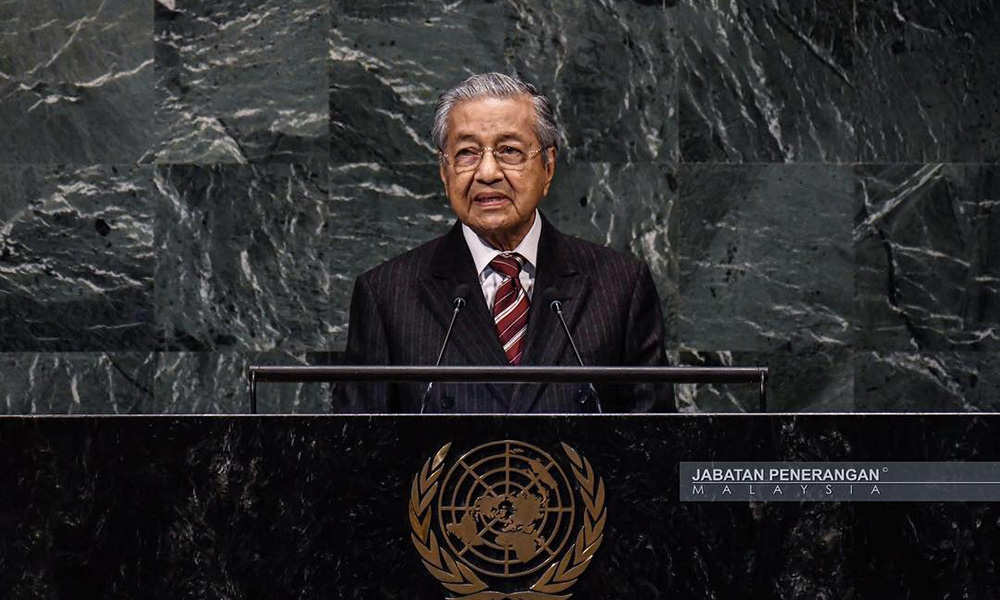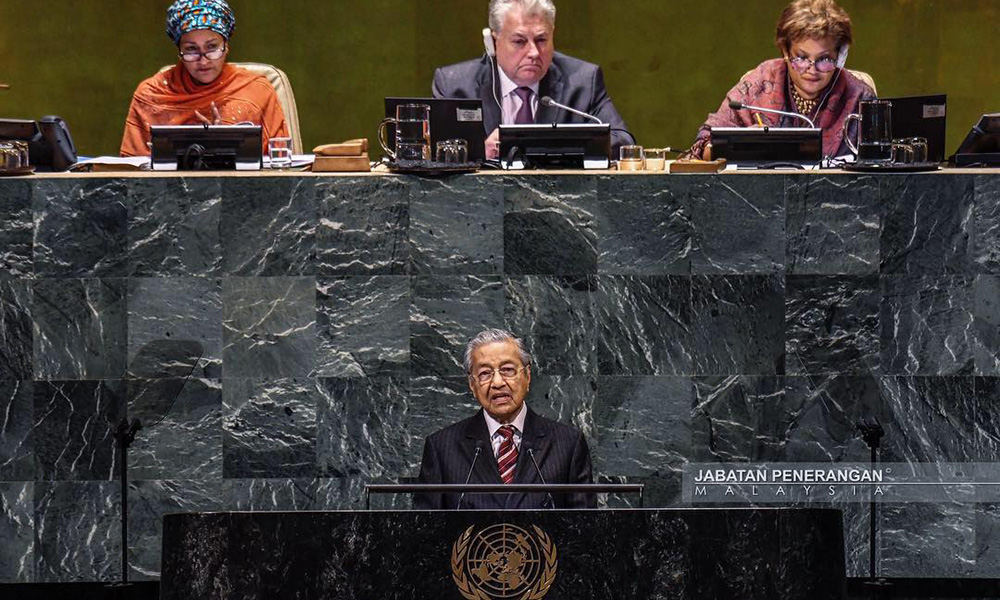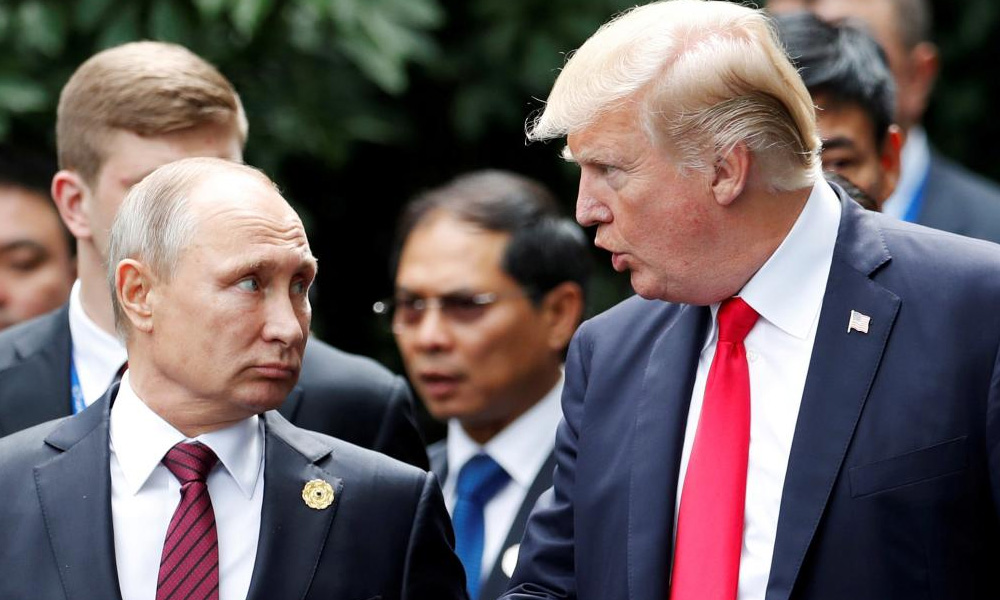What's new in Mahathir's UN speech?
Opinion |
Azly Rahman
Published: |
Modified:

COMMENT | Sharp as he was and is, Prime Minister Dr Mahathir Mohamad rattled off his speech to the international community at 11.40am EST in a shaky voice, befitting a 93-year-old man's cranking of the vocal cords.
He spoke with a slight Kedah Malay twang, at times swallowing his words and mispronouncing a few. Perhaps the long trip to New York, jet lag, and age itself contributed to an unsmooth and forceless start. Behind the light golden frame of his glasses, his eyes look puffed, and heavy with bags. He looked tired and groggy. But he was making his comeback, and the global community to know it.
Five minutes into the speech, he went right into trumpeting the idea of a 'new Malaysia', a slogan more and more now picked up by many Malaysians in their emails and WhatsApp messages – replacing the old "Salam 1Malaysia" which recalls 1MDB, now synonymous with the mysterious and puzzling grand theft of the nation's coffers, the people's savings, by Malaysia's crime ministers and their merry band of more than thieves, including those in turbans and green robes.
So, the grand old man – a veritable GOP of one, or the Vito Corleone of Malaysian politics – spoke at length about the new regime's commitment to ensuring the country's equitable share of the nation's wealth.
"My last speech here was in 2003, and fifteen years later, the world has not changed much. In fact, it is worse now," he lamented.

Against the jade-green UN General Assembly wall, he spoke of Malaysia's foreign policy of "prosper thy neighbour." He spoke with a heightened tone of how in May he overthrew race and religious bigotry to destroy the dominant 60-old party he led for 22-years, at a time when there was still no term limit. A time of consolidation of power, inspired by what Niccolò Machiavelli taught to the prince.
Seize power, consolidate power, and disperse it as hegemony, That is the lesson on the deep state of things. Love thy self, know thy enemies, one hundred battles, one hundred victories.
The New Malaysia is faced with the global issues of the effects of the US-China trade war, an attack to the institution of marriage, and the war on terrorism, he complained to the assembly.
But it was, in general, a good speech. Vintage Mahathir. Anti-imperialist, anti-hegemony, anti-oppression, and anti-US, primarily. I did not expect anything different in content, delivery and tonality from the prime minister.
He sounded as defiant as David throwing stones at Goliath or Hang Nadim warding off the swordfish with just a keris, as he did during the time of Fidel Castro, Yasser Arafat, Shimon Perez, George Bush, Bill Clinton, and Robert Mugabe – his peers in the general assembly, not all of whom lasted as long as he has.
This defiance is how Malaysia's foreign policy was crafted and communicated to a world that continues to prioritise bombs over bread.
I used to like it when Mahathir spoke to the world. He, for lack of a better cliché, called a spade a spade. I just didn't like what he did to the country in his 22 years of 'solopreneurial'-political rule. While calling for world justice, he did several degrees of harm to the country's economic, political, and educational culture, and ensured that almost all power is concentrated in the executive.
But at the UN General Assembly this year, Mahathir had nothing new to say: strive for peace in a world defined by, to use Willy Brandt's term, "arms and hunger."
I did, however, like Mahathir's mention of the military-industrial complex, of the world arming itself, and the proliferation of conflicts in a paradigm governed by the all-too-familiar maxim "in order to have world peace, nations must prepare for war."

It is a Bismarckian world the current president of the US would uphold, what with the "principled realism" undergirding the country's foreign policy – a realism based on the might of the right, and the Pentagonian power of war-loving corporate America of defence contractors, bomb makers, Lockheed-Martin, Boeing, DuPont, and Raytheon; builders of warmongering tools of peace; speakers of the language of the war system, realpolitik and gunboat diplomacy.
Thank you, Mahathir, for pointing that out.
As the Malaysian 'comeback kid' left the podium, teleprompter and all, I did not feel anything except a sense of academic nostalgia – of ploughing through hundreds of pages of his speeches of the 1980s, as he spoke of world peace.
Same tone same message, perhaps taken from old files, but whose contents still work fine.
Because the world is still the same. Sane and insane. Whether in the global arena, or at home, in Mahathir's Malaysia.
AZLY RAHMAN is an educator, academic, international columnist, and author of seven books. He grew up in Johor Bahru, and holds a Columbia University doctorate in international education development and Master’s degrees in five areas: education, international affairs, peace studies communication, and creative writing.

(2).jpg)
No comments:
Post a Comment